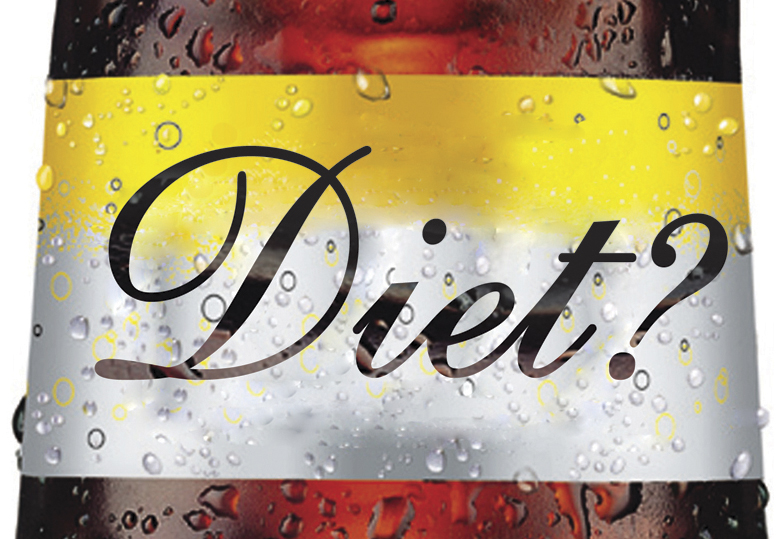Written By Jess Madden
Studies linking artificial sweeteners to heavier weight and higher diabetes rates raise questions about the benefits of diet drinks.
As the rate of diabetes in the U.S. population approaches 10 percent and obesity rates hover near 35 percent, according to the Centers for Disease Control and Prevention, the popularity of non-sugar sweeteners is soaring. But some doctors are raising concerns that the prevalence of artificial sweeteners may actually be contributing to these dire health issues.
Artificial sweeteners are certainly no stranger to criticism. Concerns about their use date back to as early as 1960, when a study was released showing high levels of saccharin caused bladder cancer in rats. Although saccharin was later deemed unharmful to humans because of the differences in urine composition between the two species, the damage to its reputation had already been done. The product was banned in several countries, and the U.S. required products containing it to carry a warning label until 2001.
Today, a quick search online will link you to thousands of websites and blogs claiming artificial sweeteners like aspartame cause everything from lupus to Gulf War syndrome. One famous chain e-mail even claimed that when the temperature of aspartame exceeded 86 degrees, it was converted to formaldehyde. These claims are not supported by any medical studies, but like so many Internet hoaxes, they’ve proven remarkably resilient.
However, recent studies on artificial sweeteners suggest that although they may not be causing cancer or other types of disease, they could contribute to the soaring rates of obesity and diabetes in the U.S. and other countries. In 2008, psychologists at Purdue University’s Ingestive Behavior Research Center studied rats that were fed yogurt sweetened with saccharin. These rats ate more and subsequently gained more weight and body fat than rats given yogurt containing sugar. The authors of the study, Susan Swithers, Ph.D., and Terry Davidson, Ph.D., theorized that “by breaking the connection between a sweet sensation and high-calorie food, the use of saccharin changes the body’s ability to regulate intake.”
A 2009 study on humans echoed those results, finding those who use artificial sweeteners to be heavier and more likely to have diabetes and be insulin-resistant compared with nonusers. The study’s author, Kristofer S. Gravenstein, a post-baccalaureate researcher with the Clinical Research Branch at the National Institute of Aging and National Institutes of Health, found that artificial sweeteners activate sweet taste receptors in enteroendocrine cells, leading to the release of incretin, which is known to contribute to glucose absorption.
Gravenstein’s study compared 550 people who did not use artificial sweeteners with 443 people who did and found that the users were younger, heavier and had a higher body mass index, yet they did not consume more calories than non-users. His findings indicated that those who used artificial sweeteners were twice as likely to have diabetes.
One of the most vocal opponents of artificial sweeteners is Dr. David Ludwig, nutrition professor at the Harvard School of Public Health and Founding Director of the Optimal Weight for Life clinic at Children’s Hospital Boston. He too believes that the use of artificial sweeteners confuses a person’s brain and makes weight loss more difficult, but he’s also concerned that their habitual use “infantilizes” taste preferences, especially among children. In a December 2009 post on Children’s Hospital Boston’s blog, “Artificially sweetened beverages: Is it nice to fool Mother Nature?” Ludwig noted, “Compared to the hyper-intense sweetness of these beverages, fruit may seem bland and vegetables may seem inedible, adversely affecting overall diet quality.”
He also points out that the long-term effects of these products are unclear. In the post, he warns: “The recent trend to substitute artificially-sweetened beverages for sugar-sweetened beverages—an attempt to have our cake and eat it too—represents a public health experiment of unprecedented scale. Never before have synthetic compounds that potently interact with ancient biological pathways been added to the food supply in such large amounts.”
In an e-mail to The Health Journal, Ludwig said: “I recommend artificially sweetened beverages only as a transitional aid, in the process of eliminating sugar-sweetened beverages.”
As scientists work to clarify the apparent link between use of artificial sweeteners and obesity and diabetes, Ludwig’s recommendation is simple: drink water. “To replace our fluid needs, our primary drink should be water,” he says. “There can be many ways to make this most natural of all beverages tasty. Squeeze in a bit of lemon or lime, put slices of cucumber and orange into a pitcher of water for a “resort” cooler, or try seltzer or mineral waters. In addition, adults can have tea or coffee (which are known to be health-promoting), with no more than 1 teaspoon of sugar per 8 ounces. I would limit 100-percent fruit juice to 8 ounces per day, maximum.”
——
In the United States, there are currently six sugar substitutes approved for use.
Acesulfame Potassium: Marketed under the name Sunett or Sweet One, it is 200 times sweeter than sugar.
Aspartame: Marketed under the name NutraSweet or Equal, it is 200 times sweeter than sugar and is used in more than 6,000 different foods and beverages.
Neotame: Although it is more than 7,000 times sweeter than sugar, its strong, bitter aftertaste has prevented it from being widely adopted for commercial use.
Saccharin: Marketed under the name Sweet-N-Lo, it is 300 times sweeter than sugar and is often combined with aspartame to mask its bitter aftertaste.
Stevia: A natural sweeter extracted from the stevia plant, it is 300 times sweeter than sugar and its use can be traced back more than 1,500 years in various countries around the world.
Sucralose: Marketed under the name Splenda, it is 600 times sweeter than sugar.


